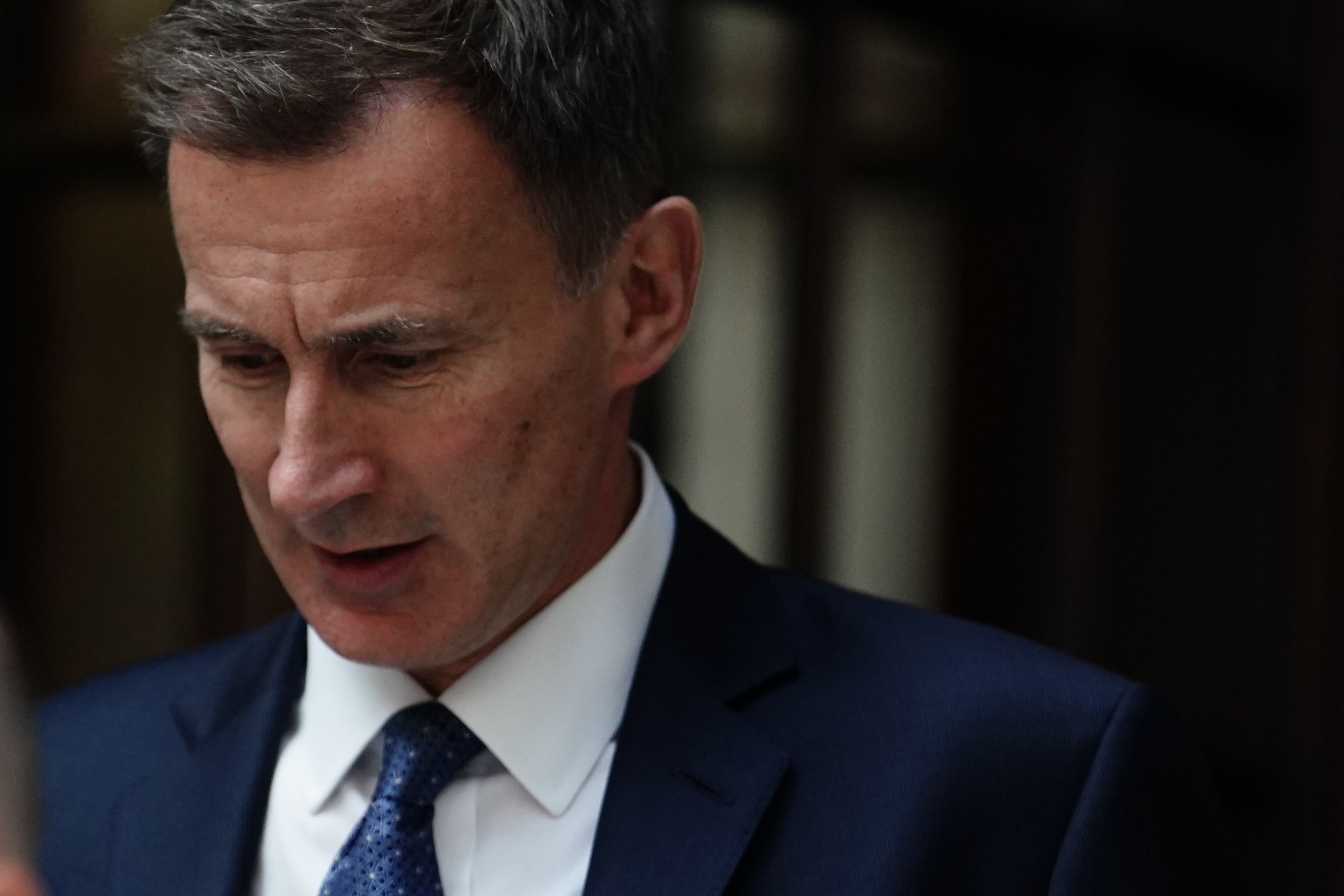Last thing business wants is ‘huge renegotiation’ with EU, says Chancellor
Jeremy Hunt’s comments came during Treasury questions in the Commons.

Your support helps us to tell the story
From reproductive rights to climate change to Big Tech, The Independent is on the ground when the story is developing. Whether it's investigating the financials of Elon Musk's pro-Trump PAC or producing our latest documentary, 'The A Word', which shines a light on the American women fighting for reproductive rights, we know how important it is to parse out the facts from the messaging.
At such a critical moment in US history, we need reporters on the ground. Your donation allows us to keep sending journalists to speak to both sides of the story.
The Independent is trusted by Americans across the entire political spectrum. And unlike many other quality news outlets, we choose not to lock Americans out of our reporting and analysis with paywalls. We believe quality journalism should be available to everyone, paid for by those who can afford it.
Your support makes all the difference.The last thing business wants is the “upheaval of a huge renegotiation” of the UK’s trading arrangement with the EU, the Chancellor has said.
Jeremy Hunt brushed aside concerns raised by MPs about the latest delay to post-Brexit import checks.
He insisted that because of Brexit, an extra £14.6 billion is being “directed to public services every year”, including the NHS.
His comments came during Treasury questions in the Commons and after the Government announced a fifth delay to post-Brexit checks on EU imports amid concerns the new system would fuel food inflation.
The first stage of the new border controls was due to be rolled out this October but now will not be implemented until January 2024.
The last thing business wants is the upheaval of a huge renegotiation of our trading arrangement with the EU, which is the largest tariff-free, volume-free trade deal in the world
The Cabinet Office said that in developing the new border regime, the Government has been mindful of the potential impact on inflation, with an estimated impact on headline inflation expected to stand at less than 0.2% across three years.
Shadow Treasury minister Tulip Siddiq said: “Last week, the Government admitted that their planned introduction of food import checks from the EU would lead to an increase in inflation hitting the pockets of ordinary people during the worst cost-of-living crisis in our lifetimes.
“In the Labour Party, we believe that a bespoke veterinary agreement would cut red tape from business and avoid pushing on costs on to ordinary people.
“So could I ask the minister, is the Government planning to negotiate a veterinary agreement? And if not, why not?”
The Chancellor replied: “Can I gently say to her, who I have a lot of time for, that the last thing business wants is the upheaval of a huge renegotiation of our trading arrangement with the EU, which is the largest tariff-free, volume-free trade deal in the world.”
SNP MP Philippa Whitford (Central Ayrshire) asked him: “Prior to the EU referendum, the Bank of England warned Brexit would seriously damage the UK economy, weakening the pound and causing inflation.
“The Government has now delayed import checks on animal and food products for the fifth time because the costs would add to inflation. So does that mean the Chancellor finally accepts Brexit is contributing to the UK’s cost-of-living crisis?”
Mr Hunt replied: “No, but of course we are sensitive about the timing of introducing those changes because of cost-of-living pressures.”
He added: “And when it comes to the NHS, she will know that because of Brexit, an extra £14.6 billion is being directed to public services every year, including the NHS and including in Scotland.”
As part of the Trade and Co-operation Agreement (TCA), the UK and EU have agreed to review the agreement every five years – the first due in 2025.